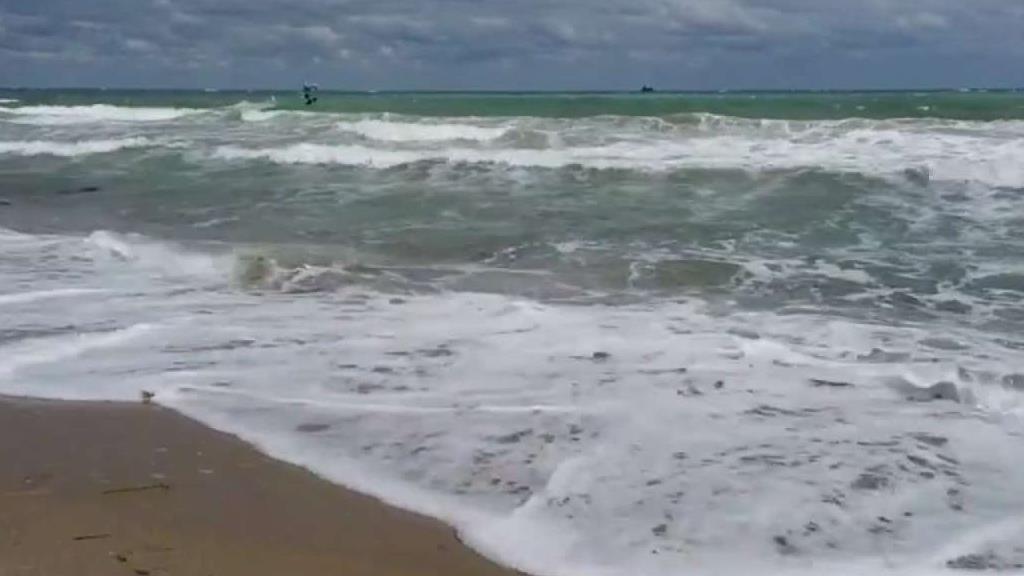Florida Gov. Rick Scott, a Republican, and former Gov. Charlie Crist, a Democrat, are running for governor. Here's a quick look at where they stand on several major issues:
ECONOMY/JOBS: Gov. Scott contends his push for tax cuts, taxpayer incentives and streamlining regulations has helped the state recover from the Great Recession. Scott wants to continue these policies, including pushing for another $1 billion in tax cuts over the next two years. Crist has criticized the use of the incentives and says more should be done to help Florida-based businesses.
Crist also supports an increase in the minimum wage, while Scott says that a hike could result in job losses. Crist has vowed to require state-hired contractors to pay their workers at least $10.10 an hour.
EDUCATION: Crist criticizes cuts in education funding pushed by Scott in his first year and says he will return education funding to "pre-recession" levels. Scott, who has pushed for additional money for schools in the last three years, promises to push K-12 funding levels higher than it was under Crist.
The two men have slightly different views on Common Core, the learning standards now being taught in Florida schools and much of the nation. Crist is a supporter of the standards, while Scott has distanced himself from them. Scott says he will create an independent committee to review them and recommend possible changes. Both candidates have questioned the current use of testing in public schools.
Scott supports expanding the use of private school vouchers and says he still supports eventually offering vouchers to any parent who wants one. Crist says he supports school choice, but says legislators have expanded their use too far. Crist also says there isn't enough local control over charter schools.
HEALTH CARE: Crist says he will push to get Florida to accept federal aid in order to expand its Medicaid program to lower income families who are not currently eligible. Scott supports Medicaid expansion as well as long as it's federally funded but says the Legislature is opposed to the idea. Crist maintains he will issue an executive order and bypass legislators.
Local
The two candidates differ on Amendment 2, which would allow doctors to prescribe medical marijuana. Crist supports the measure, while Scott is against the measure.
SOCIAL ISSUES: Crist and Scott differ on Florida's ban on same-sex marriage. Crist used to support the ban when he was a Republican, but now supports ending it. Scott, meanwhile, maintains he opposes discrimination of any kind, but has continued to defend the state's existing ban. He says he will do whatever the courts ultimately decide.
The two men also are split on abortion. Scott has signed several bills into law that aim to cut down on abortions, including a measure that requires an ultrasound prior to an abortion. As a Republican, Crist said he was "pro-life" but then said he would rather change "hearts" than the law. As a Democrat he says he would not support laws restricting a woman's right to an abortion.
ENVIRONMENT: The two candidates differ on climate change and whether it's happening. Scott in 2010 questioned whether it was occurring, while now he says he's not a "scientist" and can't say if it's occurring. Crist says he believes climate change is occurring and the state should adopt policies to battle it.
Scott, who pushed to reduce regulatory burdens during his first term, is promising now to crack down on polluters during a second term by increasing the fines that can be assessed against "bad actors" that violate permit terms. Scott also promises to boost spending on springs restoration, helping the Everglades and preserving environmentally-sensitive lands.
But Scott has not publicly taken a positon on Amendment 1 which would dedicate 33 percent of annual revenue raised through an existing tax on real estate transactions over the next 20 years to conservation projects. Crist supports Amendment 1. Crist also says he will increase spending on acquiring land for preservation and create incentives for large landowners so they won't develop their land. He also says he wants to make it more attractive for companies to invest in solar energy projects.



